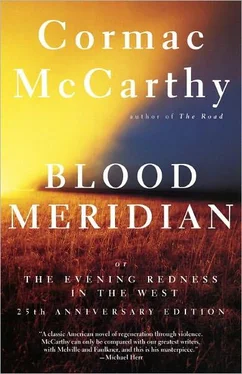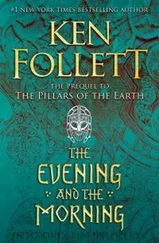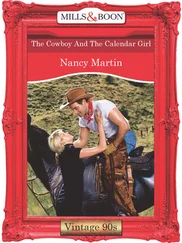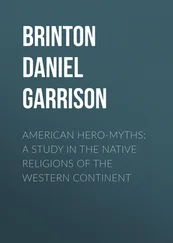In the morning they rode on. They forded the muddy Yaqui River and they rode through stands of sunflowers tall as a man on horseback, the dead faces dished toward the west. The country began to open up and they began to come upon plantings of corn on the hillsides and a few clearings in the wilderness where there were grass huts and orange and tamarind trees. Of humans they saw none. On the second of December of eighteen forty-nine they rode into the town of Ures, capital of the state of Sonora.
They’d not trotted half the length of the town before they had drawn about them a following of rabble unmatched for variety and sordidness by any they had yet encountered, beggars and proctors of beggars and whores and pimps and vendors and filthy children and whole deputations of the blind and the maimed and the importunate all crying out por dios and some who rode astride the backs of porters and hied them after and great numbers of folk of every age and condition who were merely curious. Females of domestic reputation lounged upon the balconies they passed with faces gotten up in indigo and almagre gaudy as the rumps of apes and they peered from behind their fans with a kind of lurid coyness like transvestites in a madhouse. The judge and Glanton rode at the head of the little column and conferred between themselves. The horses cantered nervously and if the riders roweled an occasional hand clutching at the trappings of their mounts those hands withdrew in silence.
They put up that night at a hostel at the edge of the town run by a German who turned over the premises to them entirely and was seen no more for either service or payment. Glanton wandered through the tall and dusty rooms with their withy ceilings and at length he found an old criada cowering in what must have passed for a kitchen although it contained nothing culinary save a brazier and a few clay pots. He set her to work heating water for baths and pressed a handful of silver coins on her and charged her with setting them some kind of board. She stared at the coins without moving until he shooed her away and she went off down the hallway holding the coins cupped in her hands like a bird. She disappeared up the stairwell calling out and soon there were a number of women busy about the place.
When Glanton turned to go back down the hall there were four or five horses standing in it. He slapped them away with his hat and went to the door and looked out at the silent mob of spectators.
Mozos de cuadra, he called. Venga. Pronto.
Two boys pushed through and approached the door and a number of others followed. Glanton motioned the tallest of them forward and placed one hand on top of his head and turned him around and looked at the others.
Este hombre es el jefe, he said. The jefe stood solemnly, his eyes cutting about. Glanton turned his head around and looked at him.
Te encargo todo, entiendes? Caballos, sillas, todo.
Sí. Entiendo.
Bueno. Andale. Hay caballos en la casa.
The jefe turned and shouted out the names of his friends and half a dozen came forward and they entered the house. When Glanton went down the hall they were leading those animals—known mankillers some—toward the door, scolding them, the least of the boys hardly taller than the legs of the animal he’d taken in charge. Glanton went out to the back of the building and looked about for the expriest whom it pleased him to send for whores and drink but he could not be found. In trying to arrive at a detail which might reasonably be expected to return at all he settled on Doc Irving and Shelby and gave them a fistful of coins and returned to the kitchen again.
By dark there were a half dozen young goats roasting on spits in the yard behind the hostel, their blackened figures shining in the smoky light. The judge strolled the grounds in his linen suit and directed the chefs with a wave of his cigar and he in turn was followed by a string band of six musicians, all of them old, all serious, who stayed with him at every turn some three paces to the rear and playing the while. A skin of pulque hung from a tripod in the center of the yard and Irving had returned with between twenty and thirty whores of every age and size and there were deployed before the door of the building whole trains of wagons and carts overseen by impromptu sutlers crying out each his bill of particulars and surrounded by a shifting gallery of townspeople and dozens of halfbroken horses for trade that reared and whinnied and desolatelooking cattle and sheep and pigs together with their owners until the town that Glanton and the judge had hoped to lay clear of was almost entirely at their door in a carnival underwritten with that mood of festivity and growing ugliness common to gatherings in that quarter of the world. The bonfire in the courtyard had been stoked to such heights that from the street the entire rear of the premises appeared to be in flames and new merchants with their goods and new spectators were arriving regularly together with sullen groups of Yaqui indians in loincloths who would be hired for their labor.
By midnight there were fires in the street and dancing and drunkenness and the house rang with the shrill cries of the whores and rival packs of dogs had infiltrated the now partly darkened and smoking yard in the back where a vicious dogfight broke out over the charred racks of goatbones and where the first gunfire of the night erupted and wounded dogs howled and dragged themselves about until Glanton himself went out and killed them with his knife, a lurid scene in the flickering light, the wounded dogs silent save for the pop of their teeth, dragging themselves across the lot like seals or other things and crouching under the walls while Glanton walked them down and clove their skulls with the huge copperbacked beltknife. He was no more than back inside the house before new dogs were muttering at the spits.
By the small hours of the morning most of the lamps within the hostel had smoked out and the rooms were filled with drunken snoring. The sutlers and their carts were gone and the blackened rings of the burnedout fires lay in the road like bomb-craters, the smoldering billets dragged forth to sustain the one last fire about which sat old men and boys smoking and exchanging tales. As the mountains to the east began to shape themselves out of the dawn these figures too drifted away. In the yard at the rear of the premises the surviving dogs had dragged the bones about everywhere and the dead dogs lay in dark shingles of their own blood dried in the dust and cocks had begun to crow. When the judge and Glanton appeared at the front door in their suits, the judge in white and Glanton in black, the only person about was one of the small hostlers asleep on the steps.
Joven, said the judge.
The boy leaped up.
Eres mozo del caballado?
Sí señor. A su servicio.
Nuestros caballos, he said. He would describe the animals but the boy was already on the run.
It was cold and a wind was blowing. The sun not up. The judge stood at the steps and Glanton walked up and down studying the ground. In ten minutes the boy and another appeared leading the two horses saddled and groomed at a nice trot up the street, the boys at a dead run, barefoot, the breath of the horses pluming and their heads turning smartly from side to side.
A new contract – Sloat – The massacre on the Nacozari – Encounter with Elias – Pursued north – A lottery – Shelby and the kid – A horse lamed – A norther – An ambush – Escape – War on the plains – A descent – The burning tree – On the track – The trophies – The kid rejoins his command – The judge – A desert sacrifice – The scouts do not return – The ogdoad – Santa Cruz – The militia – Snow – A hospice – The stable.
Читать дальше












